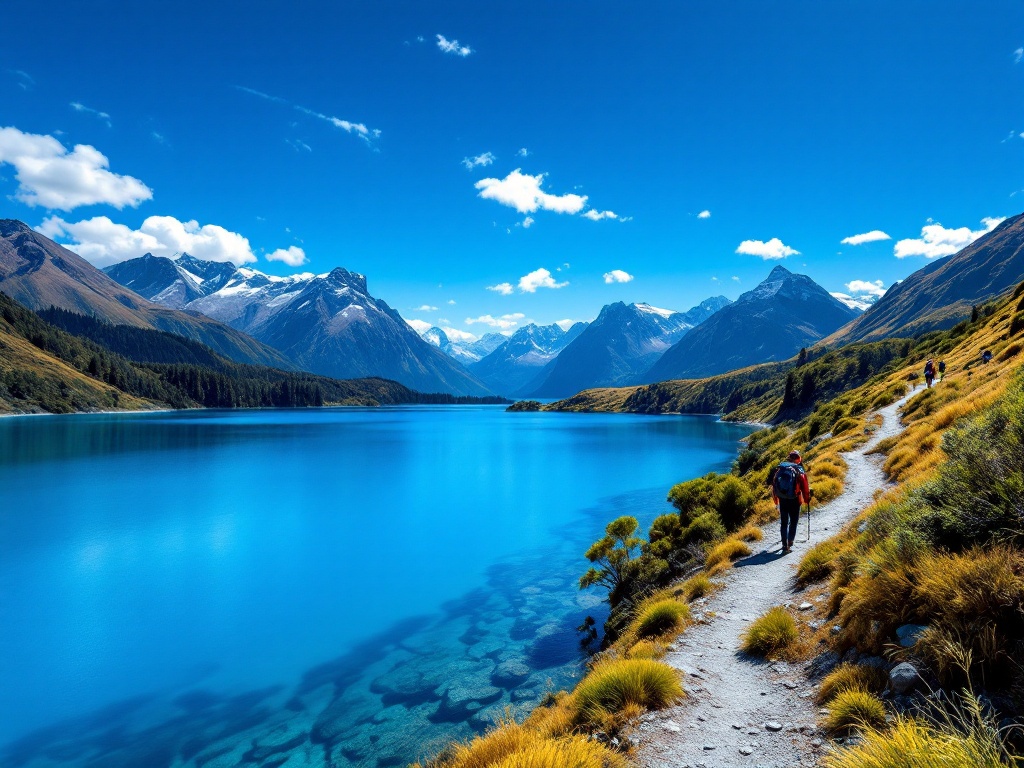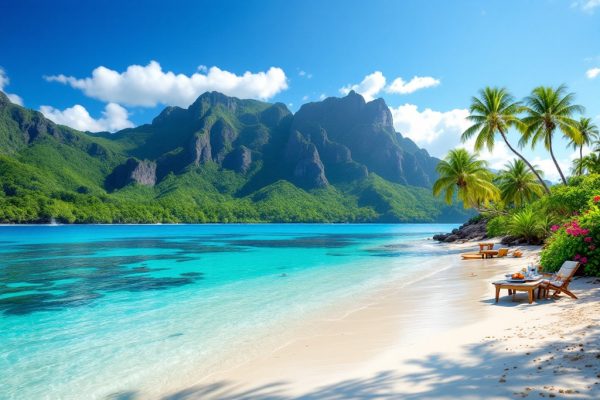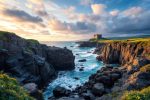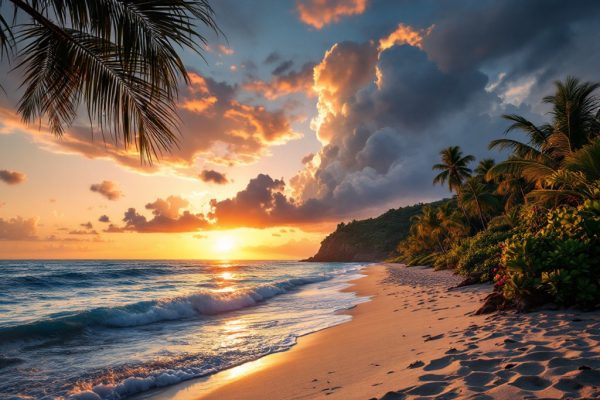Blue Lake: Clearest Lake in the World
Dive into the world’s clearest lake! New Zealand’s Blue Lake boasts unparalleled visibility up to 80 meters (262 feet), offering a glimpse into a pristine underwater world. Located in Nelson Lakes National Park, this natural wonder, sacred to the Māori people, is accessible via scenic hikes or helicopter rides. Explore its unique ecosystem and learn about the scientific research uncovering the secrets of its exceptional clarity. Discover the magic of Blue Lake – start your adventure today!
Important information

- Blue Lake, in New Zealand’s Nelson Lakes National Park, is the clearest lake globally, with visibility up to 80 meters.
- Its clarity comes from natural filtration through volcanic rock and low mineral content.
- Access requires hiking, with options ranging from a multi-day trek to a shorter 4-5 hour route.
- The lake holds cultural significance for the Māori people.
- Protecting its fragile ecosystem is vital, with ongoing research and careful tourism management.
Introduction to Blue Lake: Clearest Lake in the World
Nestled in New Zealand’s Tasman Region, Blue Lake is renowned for its exceptional clarity. With visibility reaching up to 80 meters (262 feet), it’s considered the clearest lake on Earth.
This remarkable purity stems from the lake’s minimal mineral and organic content, making it incredibly clean.
Location and Accessibility
Nestled in New Zealand’s South Island’s Nelson Lakes National Park, the stunning Blue Lake beckons hikers. There are a few ways to reach it:
- Travers-Sabine Circuit: This renowned multi-day hike offers a longer, more immersive experience.
- Mount Robert Carpark Trail: A faster route, taking approximately 4-5 hours roundtrip.
- Helicopter Ride: For those seeking the quickest and most scenic option.
Where is Blue Lake?
Blue Lake is nestled in Nelson Lakes National Park, on New Zealand’s South Island, in the Tasman Region.
How to Access Blue Lake
Blue Lake, a jewel of New Zealand’s South Island, is located within Nelson Lakes National Park in the Tasman Region. Reaching this pristine lake requires a hike, often beginning at the Mount Robert carpark and traversing part of the multi-day Travers-Sabine Circuit. A shorter route from the Blue Lake Hut offers a faster option. Overnight stays require permits. To preserve its fragile ecosystem, swimming and wading are prohibited.
Unmatched Clarity and Visibility
Blue Lake boasts exceptional clarity, offering visibility up to 76 meters, akin to looking through distilled water. This remarkable transparency has garnered international acclaim and remains unmatched.
Why is Blue Lake the Clearest?
New Zealand’s Blue Lake boasts exceptional clarity due to natural filtration through volcanic rock, effectively removing impurities. This process, combined with low nutrient levels and the absence of invasive species, results in astonishing transparency, with visibility up to 80 meters deep. This makes it the clearest lake globally, a truly remarkable sight.
Understanding Underwater Visibility
Blue Lake boasts incredible underwater visibility, plunging down a remarkable 76 meters. This exceptional clarity reveals stunning details of aquatic life and geological features, making it an extraordinary sight.
Scientific Research and Studies
Blue Lake’s remarkable clarity has captivated scientists, prompting research into its optical properties and ecological impact. Researchers are exploring what makes the lake so transparent and how this exceptional clarity influences the distribution and behavior of its unique species. The lake’s ecosystem is intricately connected to this defining characteristic.
Studies on Clarity and Aquatic Ecosystems
NIWA scientists are investigating the exceptional clarity of Blue Lake and its impact on the lake’s ecosystem. Their work explores the interplay between water clarity, light penetration, and the distribution of aquatic species, revealing the factors contributing to the lake’s pristine condition. These findings underscore Blue Lake’s unique scientific value as an ideal location for studying water ecosystems and observing environmental impacts, offering rare opportunities for scientific discovery.
Ecological and Environmental Aspects
Blue Lake’s pristine, clear water distinguishes it as an environmental treasure. Its sacred status to the Māori people underscores its significance, highlighting both its cultural and ecological importance.
Protecting this unique ecosystem necessitates careful tourism management and the prevention of contamination. Ongoing research is crucial for understanding and addressing the environmental challenges facing Blue Lake, ensuring its preservation for future generations.
Environmental Challenges and Preservation
Blue Lake’s pristine water and thriving ecosystem face significant environmental challenges. Managing the impact of tourism is crucial, such as by limiting visitor numbers. Preserving the native shoreline vegetation is also essential for protecting water quality.
Equally important is preventing the introduction of invasive species that could disrupt the lake’s natural balance. A comprehensive strategy is needed to safeguard Blue Lake for future generations.













